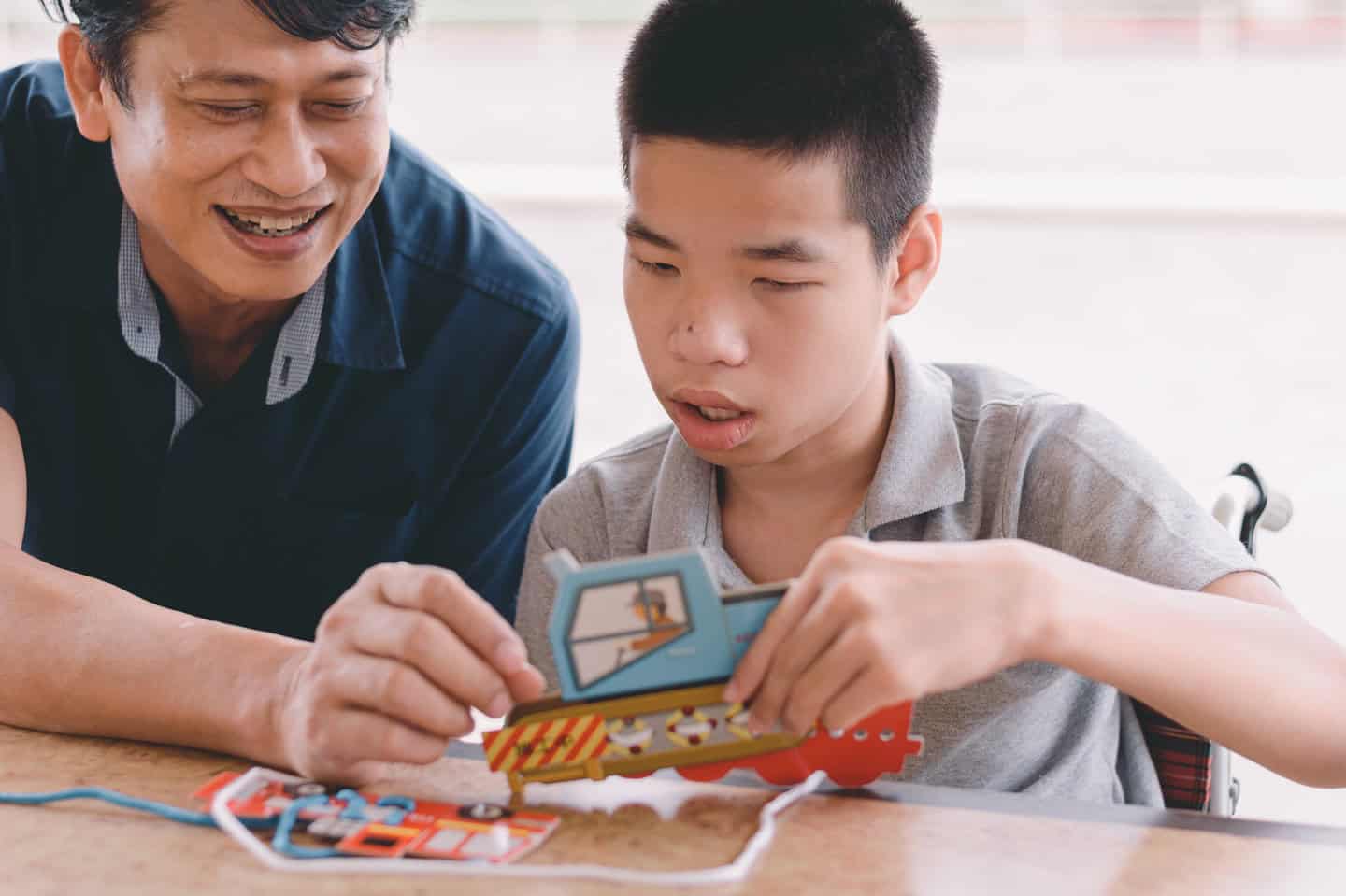
Appointing the Official Solicitor to act as litigation friend for a child
Embarking on a compensation claim on behalf of a brain-injured child is a daunting prospect for many parents who may be struggling to come to terms with the nature and extent of their child’s injuries and symptoms as well as the fact that they were caused by someone else’s negligence. In my experience as a child brain injury solicitor, parents want to do all they can to ensure they are able to meet their child’s complex needs post injury and recognise that having access to funds through a personal injury or clinical negligence claim can ensure their child gets the help they need. They feel worried however about what will be required of them if they proceed with a compensation claim and how they will manage this on top of caring for their injured child and their existing commitments, particularly as the child will need a litigation friend to act on their behalf during the claims process.
The first thing to say is that we are totally committed to supporting parents throughout the litigation. We pride ourselves on really being there for parents and ensuring they receive the practical and emotional help needed to come to terms with what has happened and to navigate the claims process. However, there may be many reasons why a parent (or carer) feels unable to act as a child’s litigation friend. They may feel they haven’t got the time/skills/capacity/education for example.
In this blog, I will explain what is involved in being a litigation friend and will consider the options available if a parent (or carer) is unable to take on this role, for whatever reason, and no other suitable person is available.
What is the role of the litigation friend for a brain-injured child?
A litigation friend is someone who acts on behalf of another person who lacks the mental capacity to conduct their own legal claim. Anyone under the age of 18 is deemed to lack mental capacity and will always require a litigation friend to act on their behalf. Often, many of our clients will continue to lack mental capacity even after the age of 18 due to their complex brain injuries and they will continue to require a litigation friend to act for them in their claim.
The litigation friend must be an adult and be able to act fairly and competently. They must always act in the best interests of the child. It is important that the litigation friend does not have any interests that are in conflict with the interests of the child.
In practical terms, the litigation friend will have regular contact with the solicitor, will receive and consider legal advice and must make important decisions on the child’s behalf in connection with their compensation claim. This could include for example:
- Make legally binding decisions on behalf of the child claimant
- Reading, approving and signing legal documents
- Providing authority to take steps in the litigation
- Giving the solicitor instructions on whether to make, accept or reject an offer to settle the child’s compensation claim
- Making decisions in relation to the child’s treatment, educational provision and accommodation
It is the role of the child’s solicitor to advise the litigation friend on the options available and the benefits and risks of any course of action in the litigation. The final decision on how to proceed must however be made by the child’s litigation friend.
In order to make these important decisions, the litigation friend is required to consider and weigh up the information and evidence available. This can involve reading reports prepared by experts in the claim and considering any advice given to them by the legal team. There is no doubt that the litigation friend has a position of responsibility and the role requires time and commitment.
Quite understandably, it can be very challenging for some parents or carers to take on the responsibility of being a litigation friend to their brain-injured child as well as trying to care for them and any other children they have whilst also holding down a job and managing other commitments. Furthermore, some parents will find it difficult to read and understand long and complex legal documents or may not feel comfortable with the responsibility of making a decision in their child’s compensation claim. I would advise any parent who feels this way to discuss their concerns with the child’s solicitor as soon as possible so that all of the options can be considered and an informed decision made about how to proceed. One option is to appoint the Official Solicitor to act as the child’s litigation friend which we did for my client “Henry” – see below.
What is the role of the Official Solicitor for a brain-injured child?
The Official Solicitor is a public official who acts as a litigation friend for children or adults who lack mental capacity where no other suitable person is able to act. Before agreeing to act, the Official Solicitor must be satisfied that the claimant lacks mental capacity. This will not be an issue with children who, as mentioned above, are deemed to lack mental capacity until the age of 18. When the child turns 18, medical evidence may be required to establish whether or not they have mental capacity to make decisions in their legal claim.
The Official Solicitor will also require confirmation that there is no other suitable person who can take on the role of the child’s litigation friend. It is therefore necessary to consider whether any other family member or friend is willing and able to act as the child’s litigation friend before approaching the Official Solicitor. Having a family member such as a grandparent or the child’s uncle/aunt can work well for some families as it allows the parent to have a familiar and trusted person carrying out this role so they can focus solely on caring for their injured child and their other commitments.
The Official Solicitor is not paid for undertaking their role but they will want to make sure that a suitable funding arrangement is in place to deal with the child’s legal costs. In most cases, the claim will be funded by a Conditional Fee Agreement (also known as a ‘no win no fee’ agreement).
If the Official Solicitor is appointed as litigation friend then they must consider the documents and evidence in the claim as well as rely on the legal advice they are given before making any decisions on how to proceed in the child’s claim. The child’s parents / carers will continue to be updated on developments in the claim and the Official Solicitor will consider the wishes of the child and his/her family before making decisions. The Official Solicitor is only able to make decisions in connection with the child’s compensation claim and cannot decide on any other aspect of that child’s life.
Once appointed as litigation friend, the Official Solicitor must act in the child’s best interests at all times. It is often hugely reassuring to many parents to have a professional person who has the time, skill and knowledge to fulfil this role on behalf of their brain-injured child.
If the Official Solicitor has been appointed but the child has mental capacity to conduct his/her own claim upon turning 18, or they gain mental capacity as an adult, then the Official Solicitor can be discharged from their role as litigation friend.
Appointing the Official Solicitor as a litigation friend is a measure of last resort and as mentioned above, there is usually a parent or family member who is able to fulfil this role. However, it can be very reassuring for the child’s family to have the option of involving the Official Solicitor if there is no other suitable person to take on this crucial role in the child’s compensation claim.
The Official Solicitor was appointed to act for my client, “Henry” and I will use his case as an example to illustrate how appointing the Official Solicitor to act as a child’s litigation friend can benefit the child and his/her family. I have changed some of the information about Henry’s case in order to protect his anonymity.
Henry’s case
Henry suffered a brain injury in a road traffic accident when he was 11 years old. His mother agreed to act as his litigation friend and this worked well until Henry reached the age of 18. He was assessed as lacking capacity which meant he still required a litigation friend despite being 18 years old. His mother worked part-time during the course of the litigation but once Henry was no longer in full-time education, she lost her entitlement to some of the state benefits she had been receiving and therefore she had to increase her hours at work in order to make ends meet.
Henry’s mother had previously managed her role as litigation friend but once she increased her hours at work, she was very busy and struggled to find the time to properly consider emails/letters of advice and documentation relating to the claim and to provide instructions promptly. This had the potential to delay the progress of Henry’s claim.
Henry did not have any contact with his father and there were no other family members or friends who could take on the role of litigation friend.
Having explored all options with Henry’s mother, she instructed us to apply to the Official Solicitor to act as Henry’s litigation friend. Our application was successful and the Official Solicitor replaced Henry’s mother as Henry’s litigation friend. Henry’s mother was kept informed about progress but she was released of the burden of having to give instructions and make decisions in relation to Henry’s claim.
If you are a parent/carer to a brain-injured child and are thinking about pursuing a compensation claim on the child’s behalf but have concerns about how you will manage this, then hopefully this article has reassured you that there are options available. Involving the Official Solicitor where appropriate can help to ensure the child’s claim continues to progress so that you can dedicate your time to your family or other commitments.









